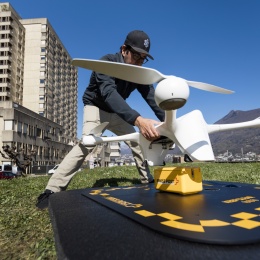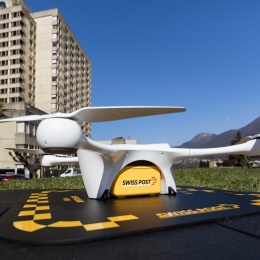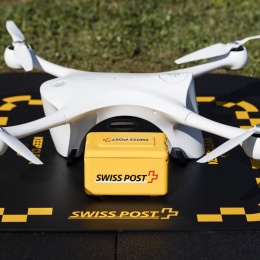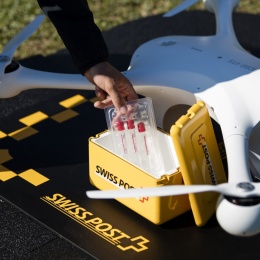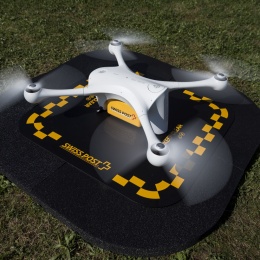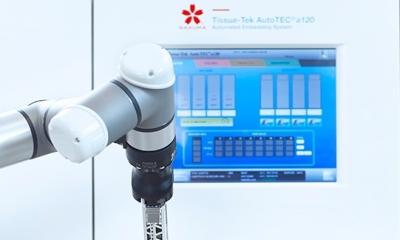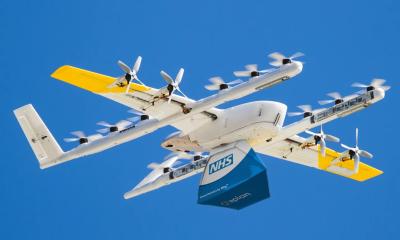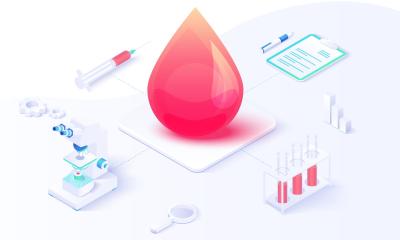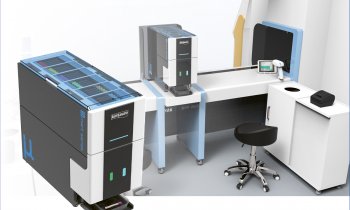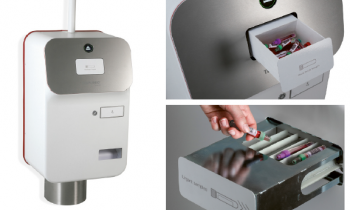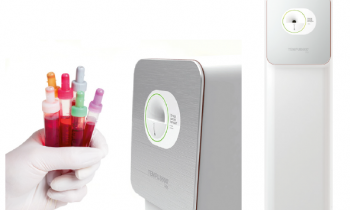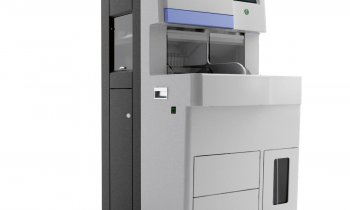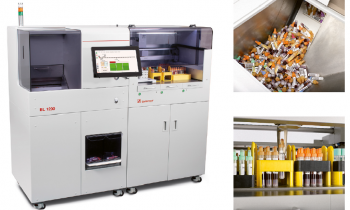Article • Flying laboratory
Drones take laboratory logistics to a new level
A Swiss hospital group is using drones to fly medical laboratory specimens between its key centres.
Report: Mark Nicholls
In what is believed to be a world first, the eight-hospital Ticino EOC organisation has partnered with Swiss Post and US drone manufacturer Matternet to spearhead faster, more efficient specimens transport. The trial is being held for flights covering the 1.3 km between two of its Lugano hospitals, the Ospedale Civico and Ospedale Italiano.
While each hospital has its own emergency room and laboratory, the laboratory at Ospedale Italiano, in the city centre, closes at 5pm and at weekends. ‘Presently the blood samples are transported between the two hospitals by local taxis,’ explained hospital director Luca Jelmoni. ‘This is, of course, subject to the availability and to traffic conditions. Therefore, to ensure transport that’s always available and economically more interesting, we decided to apply the new technologies and use drones to transport our blood samples in those time slots when one of the laboratories is closed.’
There are already clear benefits from using drones in this way: the transport time does not depend on traffic conditions or third parties, cost is lower than by taxi, and the drone can fly over hills and mountains, considerably reducing the length of transportation compared to the road. In addition, when snow makes road driving more difficult, drones will still operate and avoid delays in delivering specimens and test results. Whilst the distance between the hospitals is relatively small, Jelmoni told European Hospital that the drone can actually fly as far as 20 km, which means Ticino EOC is already considering a future possibility of transporting laboratory samples from other hospitals even further away.
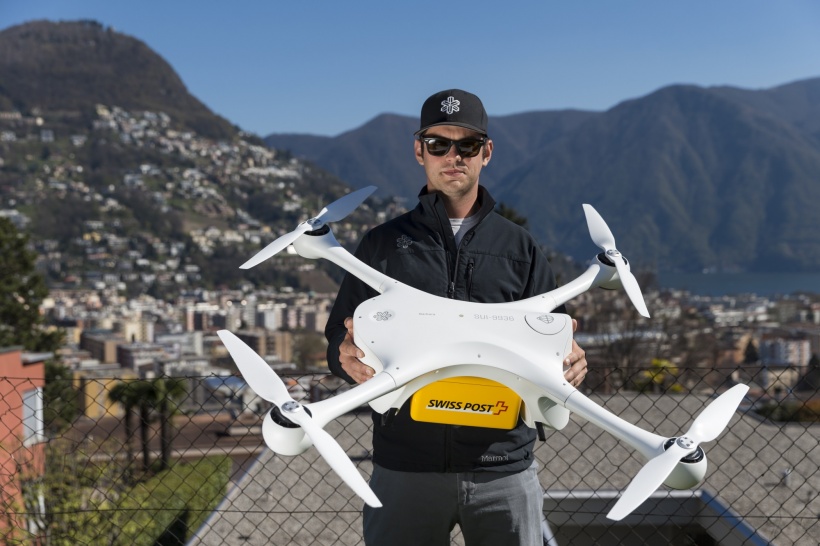
The first phase of the initiative involved proving the technical feasibility and acquiring official licenses and permits for the autonomous flights over populated areas, and this has been completed. With the approval of the Federal Office for Civil Aviation (FOCA), the trial will now move to the second phase later this year, which will see drone transport integrated into the hospital processes. ‘That will be to test the integration of drone transport with the emergency room and laboratory processes,’ Jelmoni explained. ‘This will be supported by a specific device, being developed by the supplier, which will autonomously load and unload the drone and charge the batteries.’ Phase three will see day-to-day usage of drones to transport blood samples between the hospitals, with hospital staff launching the drone via a smartphone application. The drone will then fly autonomously along the predefined route to its destination, where another staff member will receive the box.
Some observers have raised concerns that the acceleration and movement of drones might affect the quality and integrity of blood samples but, in a separate study conducted at John Hopkins University in Baltimore, researchers have shown this is not the case. The Matternet logistics drone used in Lugano is a quadrocopter, 80 cm in diameter (without rotor blades). Able to carry up to 2 kg, and with a top speed of 36 kmh, the drone can operate in temperatures of -10 to +40°C and at an altitude of 50-100 m above the ground. Safety features include a parachute in case of total drone failure, but all the drones’ on-board critical components are replicated in case of malfunction.
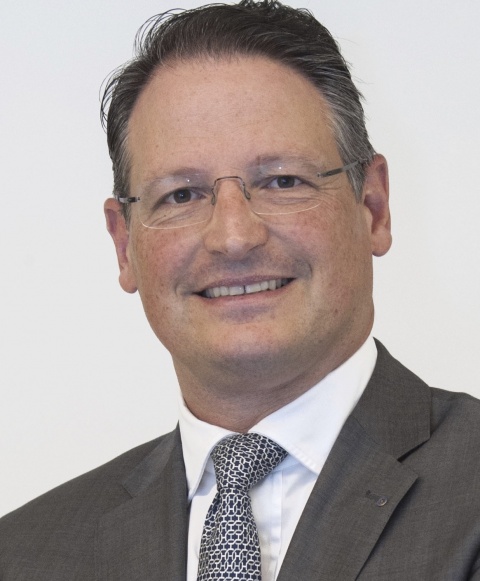
However, the test phase has seen more than 80 flights without any problems and the hospital believes transportation with drones will be as secure as transportation with a taxi. Once the drone meets all the strict requirements regarding safety, practicality and reliability, they will be in daily use between the two Ticino EOC hospitals – some time in 2018.
Profile:
Luca Jelmoni became CEO of the two public 300+-bed hospitals in Lugano, Switzerland (Ospedale regionale di Lugano) in 2012. He graduated from the ETH Zurich (Swiss Federal Institute of Technology) in 1992 and gained his MBA from Kellogg University in Chicago, USA. Initially he worked in the pharmaceutical industry, then in retail, business development and corporate finance. In 2007 he became CEO of a leading Swiss clinic specialised in reproductive medicine.
13.11.2017



